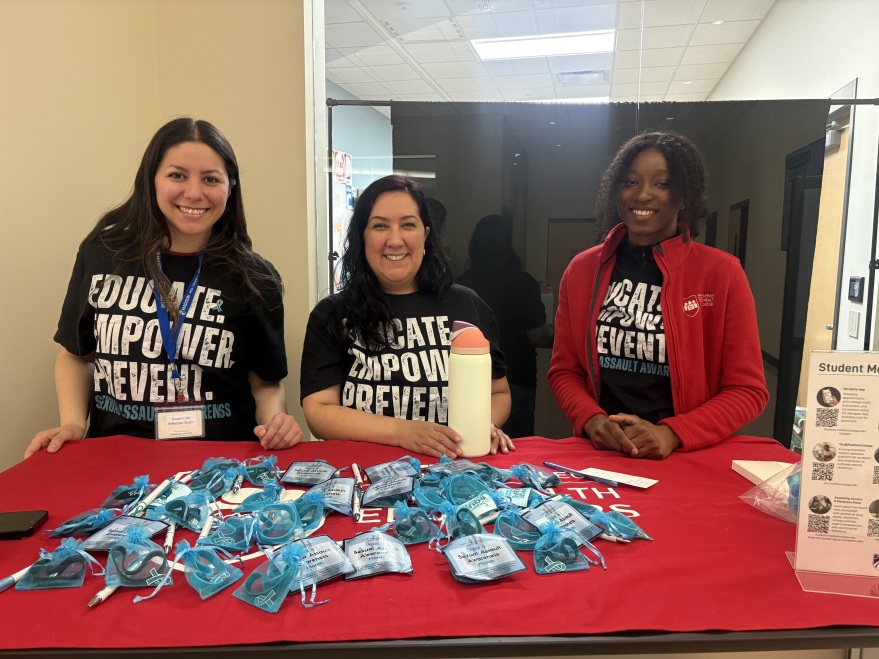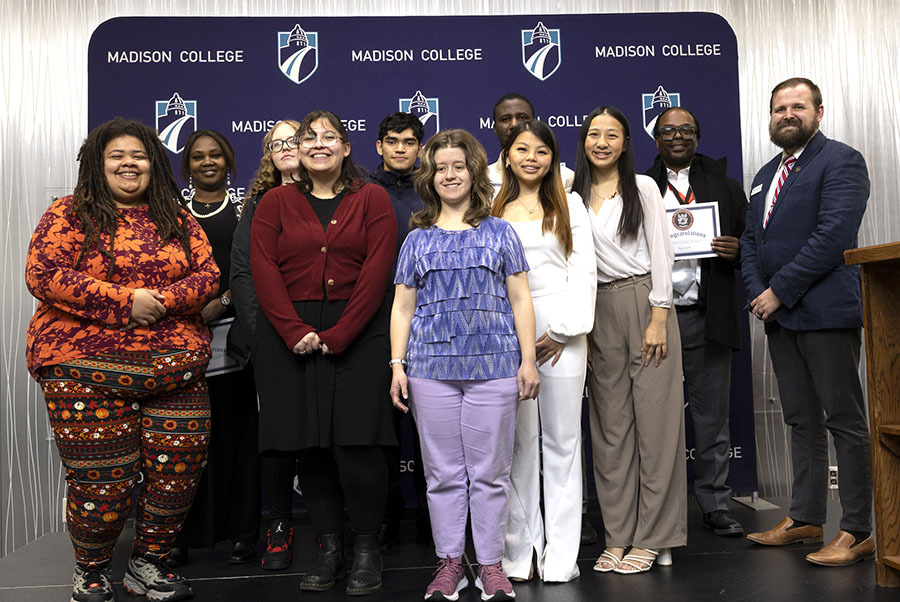Death of George Floyd sparks movement against systemic racism
September 2, 2020
Today marks exactly three months and six days since George Floyd was killed.
It is not the first time that a black man has been killed by police in this country.
But it is the first time in quite a while that the entire country, and even countries overseas, have vehemently revolted against police brutality and acknowledged the issue of systemic racism in American society.
That is what makes George Floyd’s death different than Breonna Taylor’s, Trayvon Martin’s or Elijah McClain’s. This time, a larger number of people are addressing the issues that have created a platform for police brutality to exist.
People had been stuck at home for the last few months, “and the first thing when our country’s reopening … is that they kill an innocent black man,” said Advisor of United Common Ground and Professional of Intercultural, Diversity, and Inclusion Learning Ro Encizo. “That’s why I think it’s different. We had a little bit more time to process, to think through, to watch, to get angry about this time…”
Although the pandemic has wreaked havoc on communities around the country, it has allowed people to take a step back and evaluate not only what happened to George Floyd, but also to evaluate what has been happening to people of color in America for centuries.
“I mean, this is really coming to the forefront, and it’s been building for a long time. But when it becomes so close to you, and you see it, you start to have a different perspective, and you start to understand why there’s so much protest or anger and frustration about what has happened in the country,” said President of Madison College Dr. Jack Daniels III.
Now that frustrations over systemic racism have come to a forefront, and more people have developed a different perspective, people have expressed hope that there is an actual chance for change to arise. However, several things must happen for that change to be sustained.
An important part of creating sustainable change is having white people, who benefit from a systemically racist system, realize the role that they play in this movement.
First, they must acknowledge the need for change. Then, they must act and educate themselves and others about race issues in America.
People must realize that “everybody should be a part of the movement, because it’s everybody’s issue. It’s just not one person or one entity’s issue,” said Daniels.
If you’re not speaking up against systemic racism and police brutality right now, “then you’re a part of the problem,” said Advisor of Black Student Union, Chair of the Black Women’s Affinity Group, and Transition Specialist Jodie Williams. “You’ve got to do something. You’ve got to. You’ve got to. Because this isn’t the first time that something like this has happened. And it hasn’t been the last.”
Sustainable change does not only lie in recognizing that everyone must act. Sustainable change also lies in reimagining the way that the criminal justice system functions in America.
“I think, in addition to learning and leaning into the uncomfortable, is for us to completely reimagine what policing looks like in our country. Our criminal justice system is not broken. Our criminal justice system was built to do exactly what it’s doing, point-blank. And so, that’s a fundamental piece of this. The idea of defunding the police is shocking for people, but in reality, that’s a part of it,” said Williams.
Many people don’t understand that the term defund the police doesn’t necessarily mean abolish the police.
It simply means that, in addition to reimagining how our criminal justice system operates, we should reimagine how to allocate some of the money that is invested in police departments across the country.
Some of the immense funds that police departments receive could be reallocated towards other things like health care, public housing and organizations and social programs that support people of color.
“You know I think there’s a lot of folks doing great and amazing work, but it also reminds me it’s more to me, doing this work for the last ten years. Working with diversity and criminal justice, I’ve also seen what it actually takes to create change. It is the protests, it is the people, but it’s also the funds that are coming in,” said Encizo.
It is not only health care, public housing, organizations and social programs that should receive more funding; education, too, should receive more funding.
“If you look at our educational system over the last probably 50 years, we have defunded education. We have taken away public education, we’ve taken away dollars from education, and shifted them to the police force, right, because the city budgets—you look at a city budget and you see where the preference is,” said Williams. “So, I think shifting those dollars is important and being more proactive.”
Shifting more dollars into education must be paired with increasing diversity on faculty boards, within the student body and within curriculums.
With increased diversity in the school setting, there is less of a chance for people to be miseducated about black and brown history in America and for students and teachers of color to feel alienated.
“It goes back to this theme of, you know, who wrote the textbooks, who makes the curriculum, who teaches those courses. Who is in those positions to even be a teacher themselves?” said Encizo.
Now, we are aware of the several actions that must combine to create change within a systemically racist society: acknowledging the need for change, taking action, educating yourself and others about racial issues, reimagining the criminal justice system, reallocating funds, diversifying our educational system.
Yet, there is another crucial action that will tie together all these efforts to make a change.
That action is voting for government officials that will work to uphold policies and practices that promote fairness and racial equity.
“I think one of the things that the community has to really do, and this really goes to any community that is set up right now, they’ve got to go to the polls. And so, when election time comes, they’ve got to elect individuals who they believe are going to be supportive of and will have the best interest of the communities at heart. You know, we have some serious issues in this country regarding that right now. And voting in November is going to be key,” said Daniels.































